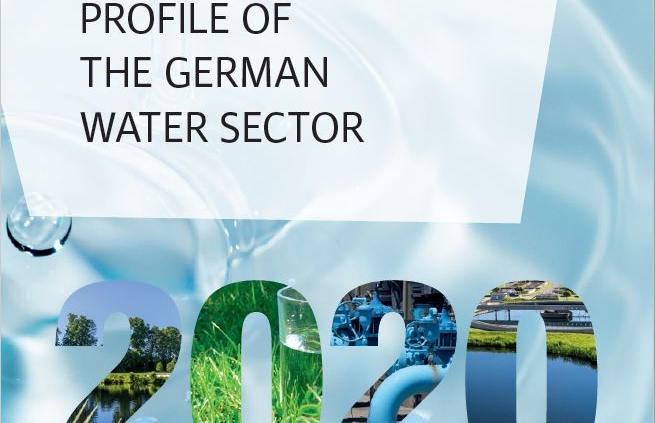Profile of the German water sector published in English
Green Deal with clear guidelines for the protection of water and soil
Hennef, 22. April 2021. With the Green Deal, the European Commission has provided the guidelines for a sustainable environmental policy in the European Union. In addition to the well-known climate goals, the Green Deal includes clear targets for an environment free of pollution. By 2050, soil and water also aim to be free of pollutants. Germany’s water sector has a clear focus on sustainability and contributes to the protection of soil and water. Drinking water is consistently offered in the best quality, and wastewater disposal is carried out in compliance with the highest standards – even under the currently aggravated conditions of the COVID19 pandemic. This high level of performance has been documented in the sector profile of the German water sector. The publication is now also available in English.
The sector profile highlights the variety of tasks of the drinking water supply and wastewater disposal in Germany, as well as their future challenges and was developed in consultation with the Association of German Cities (Deutscher Städtetag) and the German Association of Towns and Municipalities (Deutscher Städte- und Gemeindebund). The central goal of the German water sector is to secure the high-quality standards and – wherever possible and necessary – to improve them.
The supply of drinking water and the disposal of wastewater must work reliably in Germany. The importance of these services becomes particularly apparent in times of crisis. Security of supply has been and continues to be reliably ensured by our sector.
Against the background of manifold changes, all those involved are making considerable efforts to continue to operate successfully. Challenges include dealing with climatic and demographic change, and simultaneously with changing consumer habits and digitalisation. Additionally, the increasing contamination of drinking water resources by man-made pollutants, rising and often competing water demand in society, the refined detection and minimisation of the input of anthropogenic trace substances (for example pesticides and their degradation products) pose further challenges. As a result, conflicts of use with industry, agriculture, or the goals of energy policy challenge German water sector.
Drinking water suppliers and wastewater disposal companies confront these tasks. They advocate for flexible and adapted solutions on a local level through on social consensus. Increasingly, they make their business decisions in a political context. The common goal of politics and the water sector must be to overcome the challenges associated with maintaining the infrastructure and, at the same time, to anchor the sector’s efforts even more strongly in the public consciousness. High-quality water supply and wastewater disposal make an important contribution to our economic strength and the economic development of regions, in short: to our prosperity. This is precisely why we need a functioning water sector of high-quality.
Further information: Bundesverband der Energie- und Wasserwirtschaft (BDEW) Jan Ulland Phone: (030) 300199-1160
presse@bdew.de Deutscher Bund der verbandlichen Wasserwirtschaft e.V. (DBVW) Dipl.-Ing. Dörte Burg Phone: (0511) 87966-17 doerte.burg@wasserverbandstag.de Deutscher Verein des Gas- und Wasserfaches (DVGW) Lars Wagner Phone: (030) 79 47 36-64 presse@dvgw.de Deutsche Vereinigung für Wasserwirtschaft, Abwasser und Abfall (DWA) Stefan Bröker Phone: (02242)872-105 broeker@dwa.de Verband kommunaler Unternehmen (VKU) Stefan Luig Phone: 0170 8580226 luig@vku.de




